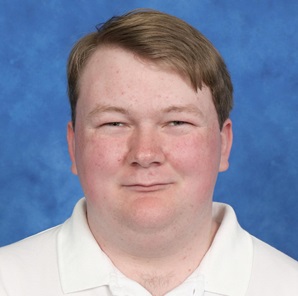
Casey Slade
Indigenous Health Scholarship
Monash University, Vic.
Bachelor of Medical Science and Doctor of Medicine
Scholarship Awarded 2025
Sponsored by:
Rotary District 9790 Eltham Group
Student Profile
My name is Casey Slade, I’m a Ngiyampaa man from Ivanhoe NSW. I was born at Lismore base hospital but shortly moved to my dad’s hometown of Ivanhoe. We lived there for a few years before moving to Mildura and finally settling in Wentworth where I live when not at university. I was never sure what I wanted to do after high school until a few close family members needed to see specialists and I realised just how big of a barrier travelling so far for healthcare was, let alone the impacts it has on the person and their families.
The financial stress of having to travel so far, the mental stress from isolation if they cannot afford to have their mob stay with them, in addition being so far off country. It is situations like these that pushed me to healthcare and hopefully into a speciality where I can make some change and reduce the need to travel so far for life saving care.
How will I contribute to improving Indigenous health as a qualified medical practitioner or health worker?
This scholarship will allow me to dedicate my time completely to my medical education in hopes of bridging the gap so many rural and indigenous communities face. I’ve seen first hand how when in need of life saving or end of life care, people of these communities must travel hundreds or thousands of kilometres, off their country and isolated from their kin. It’s these experiences that motivate me in my studies and drive me toward my goals in research, practice and advocacy.
I’ll also have the freedom to pursue unpaid academic and clinical opportunities I otherwise wouldn’t have access to. Things such as internships, research or volunteering at Indigenous health initiatives, things that would be vital for me and my aspiration to publish research that would make more doctors aware of just how much of an impact receiving healthcare on country has on indigenous people and communities, while developing skills to better my future practice.
In addition to my research aspirations and my hopes to take down the barriers rural Indigenous communities face when accessing healthcare, I also hope to be a role model for the next generation of indigenous students. Through the continuation of my studies, as I am part of the Extended Rural Cohort, I will undergo placements in rural Victoria, and likely subsequently practice there, I hope to inspire Indigenous kids within these communities, showing them that tertiary education is not only attainable, but it can also be a catalyst for change, especially within healthcare.
Current Progressive Report
Semester 2 of last year was much the same as the first. The content was dense and challenging to move through, while the time spent away from family was wearing me down further. Luckily, I had solid supports to rely upon, the faculty were invaluable in ensuring I did not fall through the cracks academically. Socially I was able to rely on new connections made in Melbourne but was also lucky enough to find time to fly home and visit family, allowing time to decompress during the midsemester break before the final stretch of studying for my pre-clinical years.
With that final stretch of study done, I am now in my clinical years and have just finished the first week of the semester. I was fortunate in being placed at the Monash Mildura site for this year and the next, so I will be able to live with family should I choose and reconnect with friends during the semesters as opposed to catch ups isolated to the holidays. Heading into the second week, where we will actually start hospital-based learning, I finally realised I made it to that light at the end of the tunnel I motivated myself with during the past two years. I can finally begin to apply the skills I have been building, finally exercise the knowledge they drilled into us. This realisation made me not only immensely proud of myself for overcoming moments where I felt incapable of doping so, but also immensely thankful for those supports I spoke on earlier in addition to the support from Australian Rotary
As I mentioned in my last reflection, I’m not sure I’d be at this point or feel as well supported as I do without the support from the ARH scholarship. My family lives in Wentworth, a roughly 25-minute drive from the hospital in Mildura and not having a car of my own makes that difficult. Today I moved into university accommodation with 3 peers, something I’d be unable to do without the financial support ARH affords me. I am now in walking distance of the hospital and able to both socialise and engage in group study with peers far easier thanks to this arrangement.
While in Mildura I hope to build connections within the community that will exist beyond my medical degree and both set me up for success in my future career but also set up my practice to be one that aids the community to the fullest. Thank you for making this possible.